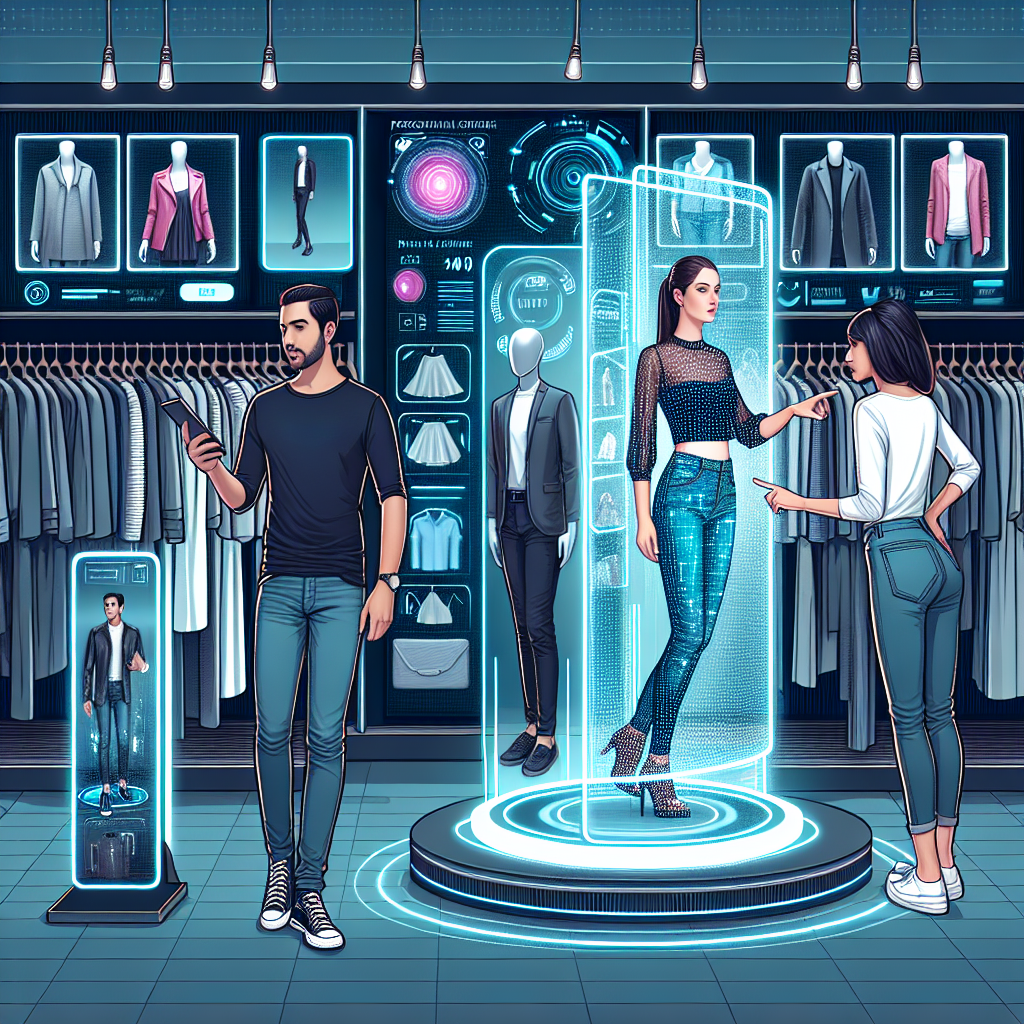The fashion industry has always been at the forefront of innovation and technology, constantly pushing boundaries and redefining the way we shop for clothes. With the advent of artificial intelligence (AI), the fashion retail sector has seen a significant transformation in recent years. From virtual try-ons to personalized recommendations, AI has revolutionized the way we interact with fashion brands and retailers.
Virtual Try-Ons:
One of the most significant impacts of AI on fashion retail has been the development of virtual try-on technology. Virtual try-ons allow customers to see how clothes will look on them without having to physically try them on in a store. This technology uses AI algorithms to analyze a customer’s body shape and size, and then creates a virtual avatar that can try on clothes in real-time.
Virtual try-ons have not only made the online shopping experience more interactive and engaging but have also helped customers make more informed purchasing decisions. By being able to see how clothes will look on them before making a purchase, customers are more likely to be satisfied with their choices and less likely to return items due to sizing or fit issues.
Personalized Recommendations:
Another significant impact of AI on fashion retail is the development of personalized recommendations. AI algorithms analyze a customer’s browsing and purchasing history to create personalized recommendations for clothes and accessories that they are likely to be interested in. This not only helps customers discover new styles and trends but also enhances the overall shopping experience.
Personalized recommendations have been shown to increase customer engagement and loyalty, as customers feel that brands are catering to their individual preferences and tastes. By using AI to deliver personalized recommendations, fashion retailers can create a more personalized and targeted shopping experience that resonates with their customers on a deeper level.
Improved Customer Service:
AI has also had a significant impact on customer service in the fashion retail sector. Chatbots powered by AI algorithms are being used to provide real-time assistance to customers, answering questions, providing product recommendations, and addressing concerns. This has helped to streamline the customer service process, making it more efficient and effective.
Chatbots powered by AI can provide 24/7 support to customers, ensuring that they receive assistance whenever they need it. This has helped to improve customer satisfaction and loyalty, as customers appreciate the convenience and responsiveness of AI-powered customer service.
Supply Chain Optimization:
AI has also been used to optimize supply chains in the fashion retail sector. By using AI algorithms to analyze data and predict trends, fashion retailers can better forecast demand, manage inventory, and reduce waste. This has helped to improve efficiency and reduce costs, making the supply chain more sustainable and environmentally friendly.
AI-powered supply chain optimization has also helped to improve the speed and accuracy of deliveries, ensuring that customers receive their orders in a timely manner. By using AI to optimize their supply chains, fashion retailers can improve their overall operations and provide a better shopping experience for their customers.
FAQs:
Q: How does AI virtual try-on technology work?
A: AI virtual try-on technology uses algorithms to analyze a customer’s body shape and size, and then creates a virtual avatar that can try on clothes in real-time. Customers can see how clothes will look on them before making a purchase, helping them make more informed decisions.
Q: How are personalized recommendations created?
A: Personalized recommendations are created using AI algorithms that analyze a customer’s browsing and purchasing history to predict their preferences and tastes. By analyzing this data, AI can create tailored recommendations for clothes and accessories that customers are likely to be interested in.
Q: How can AI improve customer service in fashion retail?
A: AI can improve customer service in fashion retail by using chatbots to provide real-time assistance to customers. Chatbots powered by AI algorithms can answer questions, provide product recommendations, and address concerns, helping to streamline the customer service process and improve customer satisfaction.
Q: How does AI optimize supply chains in fashion retail?
A: AI optimizes supply chains in fashion retail by using algorithms to analyze data and predict trends. By forecasting demand, managing inventory, and reducing waste, AI helps fashion retailers improve efficiency, reduce costs, and provide a better shopping experience for customers.

